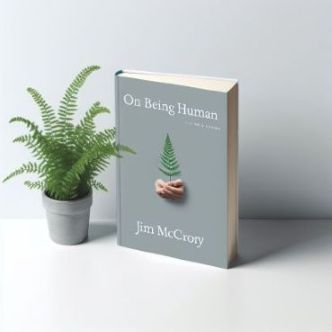“Other people are never the problem, although blaming them for your own misery is.”
— Jordan Peterson

Image generated by Microsoft Copilot
Beyond Blame: How Young Men Grow Up
There’s a stage in many young men’s lives when the world feels unfair, and somewhere in that tangle of frustration and identity, they turn their eyes back, to childhood, to family, to the parents who raised them, and ask, “Is this their fault?”
It’s an understandable question. For many, the early years weren’t easy. Some fathers were distant or demanding, some mothers overwhelmed or emotionally unreachable. Some homes were fraught with silence, others with shouting. When life in adulthood becomes difficult, when relationships break down, ambition falters, or confidence thins. It's easy to trace the outline of those early years and see failure stamped on every corner. And easier still to assign blame rather than seeing your own faults and failures.
Jordan Peterson has spoken directly to this kind of thinking, particularly among young men who feel unmoored. In one of his many talks, he delivers it plainly: “Other people are never the problem, although blaming them for your own misery is.” It's not that he denies trauma or downplays pain. His point is sharper: staying in the blame keeps you stuck. It puts your life’s steering wheel in someone else’s hands.
That hits a nerve. Because the truth is, blaming your parents feels like doing something—but it achieves nothing. It’s a way to hold the past accountable while avoiding the difficult work of changing the present.
Peterson’s message here isn’t cruel. It’s a call to agency. You may not be responsible for what happened to you, but you are responsible for what happens next. That distinction is everything.
There’s a point when a man has to make peace with his past—not by approving it, but by refusing to be ruled by it. Some never get there. They become experts in pointing backward. They rehearse old grievances until the memory of their father becomes bigger than their own reflection in the mirror. They wait for healing to come from someone else’s apology. But healing doesn’t work like that. Healing begins when you accept that no one else is coming to rescue you—and that you don’t need them to.
Growing up is partly learning that people are flawed. That your parents, however sacred or disappointing, were human beings working with what they had. Sometimes they didn’t know better. Sometimes they did and still failed. But endlessly re-litigating those failures is a poor substitute for growth.
What matters is what you do with the pieces.
You can blame the men before you—or you can become the man you needed them to be.
Responsibility sounds dull compared to the heat of resentment. But responsibility is where the real fire is. It’s where your life begins to take shape on your terms. When you decide to build something better—not out of spite, but out of vision—you become something different. You stop being a reaction and start being a force.
Blame is passive. Ownership is active.
There’s no ceremony for this kind of transition. It’s quiet, private. Often, no one sees it. But the moment you stop fixating on who failed you and start asking what you can do now, something shifts. You move from being a passenger to taking the wheel.
Some carry father wounds for life. But others become fathers themselves—not just biologically, but in the broader sense: creators, mentors, builders of a better legacy. They don’t pretend the past was perfect. They simply stop letting it dictate their future.
Not because it didn’t matter.
But because something else matters more.